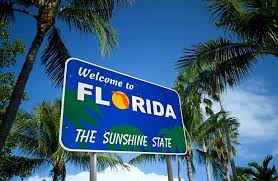Whether you are visiting for a vacation, shopping, tourism, or other reasons, Switzerland has one of the highest standards of living imaginable. Not only is the country beautiful, but it is also clean and safe, with plenty of job opportunities. It also has an excellent healthcare system. However, moving to Switzerland is a complicated process, both in terms of cost and requirements. You’ll need to obtain a long-term visa, find housing and work, and relocate your belongings. People want to leave for a variety of reasons. Job or business opportunities, political disenchantment, a desire to experience a new culture, familial reasons, or finding a partner from another country are some of the most common reasons. Switzerland is also a popular choice for many Americans looking to relocate as the country is welcoming with 25% of its population being foreign individuals.
Here is a guide to everything you need to know about moving to Switzerland from the U.S. to make your travel as smooth as possible.
How to move from the United States to Switzerland?
You can move to Switzerland from the United States relatively quickly if you have a passport and a travel visa. The type of visa you’ll need is determined by what you intend to do while in town. In Switzerland, you can apply for either a short-term or long-term visa.
In general, there are five types of temporary visas that you can apply for:
#1. Temporary visa:
A Schengen visa for short-term stays allows you to stay in Switzerland for tourism or business for up to 90 days. Tourist/visitor visas, business visas, event or official visit visas, and short-term study visas are examples.
#2. Non-immigrant visa:
The national visa is intended for visitors who intend to stay in Switzerland for more than three months but do not intend to stay permanently. If you take this route, you’ll also need to apply for a temporary residence permit.
#3. Student visa:
This is a good option for students who want to study in Switzerland for an extended period. When you receive your acceptance letter from a Swiss university, you will also receive an acceptance letter for your visa application. After six months, you will be able to apply for temporary work for up to 15 hours per week.
#4. Temporary work visa:
A work permit can only be obtained if you have been offered a job in Switzerland. Furthermore, the position must be a fixed-term contract with a start and end date.
#5. Non-immigrant family visa:
You can apply for this type of visa, along with a temporary residence permit, if you want to visit a naturalized spouse or family member in Switzerland for a limited period that is longer than three months.
They are also three types of long-term visas you can still apply for. They are:
Other, less common ways to immigrate to Switzerland include applying for a retirement visa or seeking asylum from persecution.
Steps on moving to Switzerland from the US
#1. Apply for a long-term visa to Switzerland:
You can enter Switzerland once you have applied for and received your long-stay visa. Long-term Swiss visas are classified into the types below:
#2. Apply for the appropriate residence permit:
After entering Switzerland, you can register with the cantonal immigration and labor market authorities to obtain a Swiss residence permit. If you want to stay and work in Switzerland for more than three months, you must have a residence permit, regardless of nationality.
#3. Make an application for permanent residency:
Obtaining permanent residency in Switzerland is a lengthy process. The length of the process will vary depending on where you are migrating from. Members of the European Union can obtain a P.R. in Switzerland after five years of residency. After living in Switzerland for five years in a row, Americans and Canadians can apply for permanent residency.
Citizens from non-EU countries can apply for a Swiss Permit C after ten years of living in the country with a Swiss Permit B.
We advise American ex-pats in Switzerland to obtain adequate health insurance from a reputable provider. International Citizens Insurance can offer free international health insurance quotes. A professional moving company can assist you with your move to Switzerland.
Where do I apply for a swiss visa if I want to move to Switzerland from the United States?
You can apply by mail or in person. This means that you can either mail or personally deliver the completed application to the Swiss embassy/consulate in your country of residence. Monday through Friday, from 9 a.m. to 12 p.m., you can drop off the application at the reception desk (noon).
There is no need to make an appointment in advance for long-stay visas.
How do I obtain a Swiss long-term visa?
One of the steps involve in the process of moving to Switzerland is it’s application. To apply for a long-term visa to Switzerland from the United States, follow these steps:
- Payment of all visa fees.
- You must include an envelope with your address and tracking number as the recipient when you submit your application. Prepaid envelopes must be used. If your application is incomplete, the visa authorities at the embassy/consulate will use this envelope to return it to you.
- After you have submit your long-stay visa application to the Swiss embassy/consulate in the United States, it then goes to the immigration office of the canton where you wish to relocate. Switzerland comprises of 26 cantons, each of which is in charge of issuing residence permits to foreigners who wish to settle in that canton.
- Once the cantonal authorities approve your application, the Swiss embassy in the United States will be notified, which will issue your visa.
What is the cost of moving from the US to Switzerland?
Moving internationally is not cheap, and Switzerland is no exception. On average, relocating to Switzerland will cost between $3000-$5000—and this cost, however, will vary greatly depending on your specific circumstances.
There are a few things you should keep in mind when budgeting for this type of move:
- The cost of packing and shipping your belongings
- Insurance premiums
- Flight and transportation expenses
- Customs and duty fees
- Fees for visas and immigration
- Housing and storage expenses
- Utilities and phone plans in your area.
The average cost of a move from the United States to Switzerland, according to Allied, is $3,450. (USD). Aside from the shipping fee, Allied states that the types of items shipped and the distance of the move affect the cost. A determination on your final bill whether you have the company pack or unpack your items.
What documents do I need to move to Switzerland from the US?
When applying for a long-stay visa in the United States, you must bring a set of documents that will be in need by Swiss cantonal authorities to assess your application and make a decision.
Some of the prerequisites differ based on why you are moving to Switzerland. When trying to apply for a Swiss work visa, for example, the requirements may differ from those for a family reunion visa.
There is, however, a set of documents that everyone m
- A long-stay (national/D-) visa application form that has been completed and signed. (There are three copies)
- Four passport photos. They have to be:
- Identical
- Recent (no more than six months old) (no more than six months old)
- 35–40mm
- Your face should take up 70-80% of the photo
- Two copies of your valid passport or travel document, each with the following information:
- Your passport photos must meet Switzerland’s requirements.
- Your details
- Your signature
- If you are not a US citizen, you must: Two notarized copies of your proof of US residency, such as a Green Card, H1B visa, or F-1 visa.
- If you hand in your application: Form for Submitting a Visa Application.
Once your application has been approved by the cantonal migration office, you must submit your original passport or travel document to the Swiss embassy/consulate to receive your visa.
Remember that the Swiss authorities have the authority to request any additional documentation they deem necessary. To enter an interview, you would appear in person at the Swiss embassy/consulate.
What Swiss residency permits can I obtain?
You can enter Switzerland once you have received your long-stay visa. You will have 14 days after arriving to register at the cantonal migration office and obtain your residence permit.
The following types of Swiss residence permits are available to you:
#1. Permit L is for short-term residence.
This permit is only valid for one year and can only be renewed once. As a result, the maximum time you can spend in Switzerland with an L Permit is 24 months. The L Permit is tied to a specific job or company, and you may not be able to obtain another permit if you want to work somewhere else.
#2. Permit B is for temporary or initial residence.
The B Permit is also valid for one year, but renewing can take place annually unless there are special circumstances. It is also usually limited to a single canton or employer. However, after ten years of living in Switzerland with the B Permit, you can apply for a Permanent Residence Permit (C Permit).
Benefits of moving from the US to Switzerland
When compared to the United States of America, Switzerland wins in a variety of ways.
#1. Education
Relocating to Switzerland with your family, you will find that the country has a high standard of excellence in all areas of education, from primary to tertiary institutions. Switzerland is known for having a strong educational system, and many ex-pats has shown satisfaction with their children’s experiences in Swiss schools. Your children will receive a comprehensive education that will prepare them for whatever future career paths they choose. In contrast, the quality of the American educational system, particularly primary and secondary education, is frequently criticized.
#2. Higher living standards
As a whole, Switzerland has the feel of a fairytale land. There are no beggars on the streets, all public spaces are reasonably clean, and crime is low. Furthermore, wages are significantly higher in comparison to Americans. Waiters are said to receive at least 20 CHF per hour. Engineers, teachers, and scientists earn more than their counterparts in the United States. (It ought to be acknowledged, however, that the cost of living is higher for the majority of things, such as eating out and groceries.)
#3. Healthcare
The requirement by law states that every persons moving to Switzerland are to obtain health insurance within three months of their arrival. Even if you were only visiting Switzerland for three months, the Swiss health insurance provider need to cover you.
Although the Swiss must pay for their health insurance privately, the system is universal. This means that every healthcare provider must provide individuals with basic healthcare packages and cannot refuse anyone under any circumstances. In addition, the government spends the most on healthcare than any other country in the European Union.
#4. Employment and the economy
Switzerland’s economy is stable and strong, with a low rate of unemployment. Furthermore, Switzerland lacks any “problematic industries,” such as mining, where small shifts in demand cause large increases in unemployment.
The Swiss also value work-life balance and not heavy workload for themselves. On Sundays, most businesses and stores are closed because everyone enjoys their day off!
Conclusion
Moving is a stressful experience for many people. Moving internationally is a completely different challenge. While attempting to manage this large relocation, it is critical to delegate as many responsibilities as possible. If you’re certain that relocating to Switzerland is in your future, I recommend that you plan ahead of time and gather all of the necessary documents.
Frequently Asked Question
How hard is it for an American to move to Switzerland?
Switzerland can be difficult to relocate to permanently, but it is relatively simple to relocate there temporarily. Swiss visas allow visitors to stay for extended periods, up to six months. Depending on the restrictions of your visa, you can also apply for temporary residency in this manner.
Is moving to Switzerland worth it?
Switzerland has long been viewed as one of the top places to live in the world, owing to its high living standards and low rate of crime. Switzerland has some of the highest salaries in the world, as well as excellent education, healthcare, and chocolate.
Can I move to Switzerland without a job?
If you want to live in Switzerland without working, you must apply for a residence permit from the cantonal immigration and labor authorities. You may also be required to obtain a visa from a Swiss representative abroad, depending on your nationality.
How much money do you need to live comfortably in Switzerland?
A single person in most Swiss cities would require a net salary of 3,500 CHF per month to live comfortably, while a family of four would require a net salary of at least 9,000 CHF per month.
Are there any downsides to living in Switzerland?
However, most ex-pats in Switzerland agree that the country provides a higher quality of life. They are paid more and have access to universal healthcare and education. However, truly integrating into local life and making Swiss friends can be challenging. Furthermore, the country is extremely expensive.
What are the disadvantages of living in Switzerland?
Available housing is scarce, and the rules are strict. The Swiss real estate market can be competitive and costly. Hard to meet swiss people and Banking is easy but expensive.
Related Articles
- OCCUPANCY PERMIT: How To Get Residential Occupancy Permit In Different States
- CONDITIONAL USE PERMIT: Guide For Real Estate Investors
- Can You Do 1031 Exchange Primary Residence? All You Need To Know
- MOVING TO ANOTHER STATE CHECKLIST: The Ultimate Guide(Opens in a new browser tab)
- CHEAPEST WAY TO MOVE OUT OF STATE IN 2023






